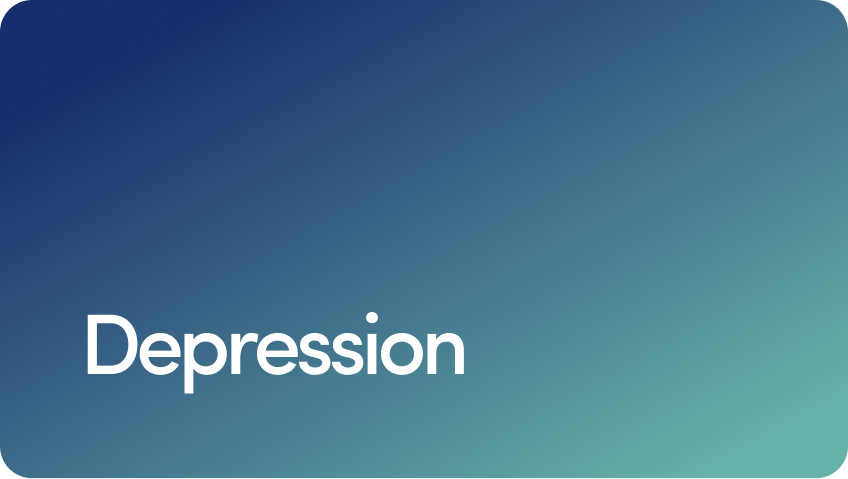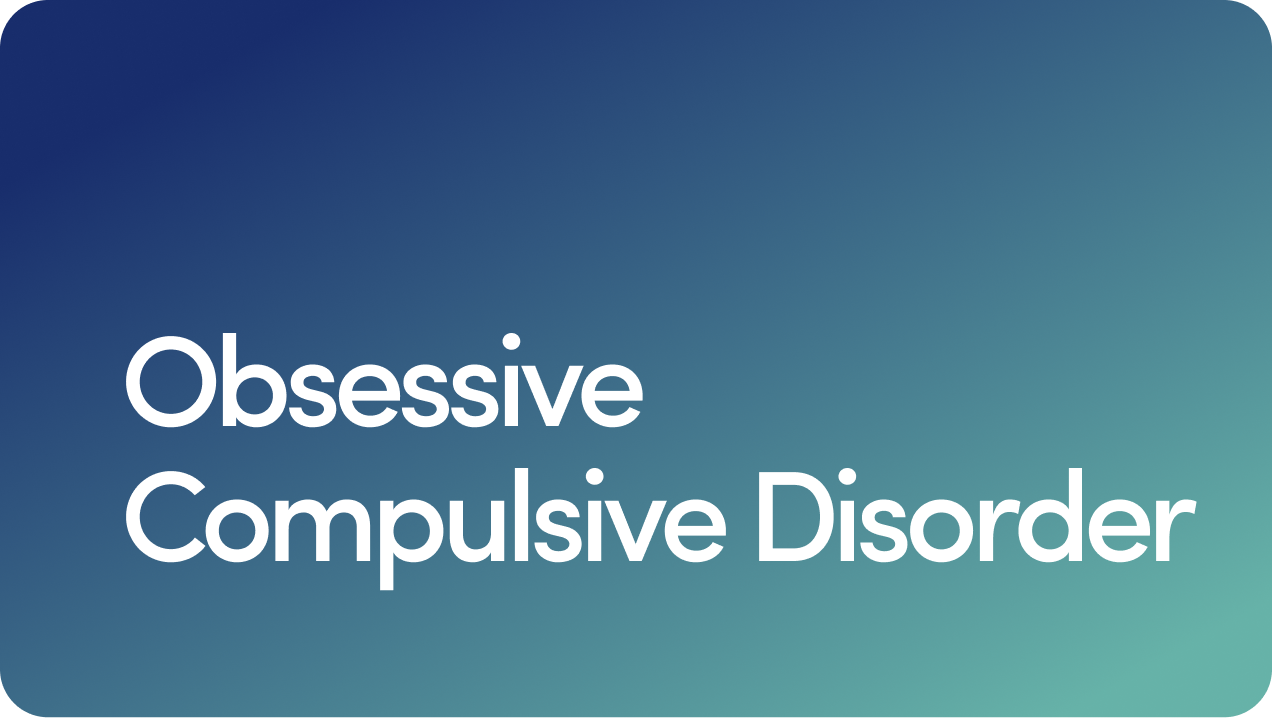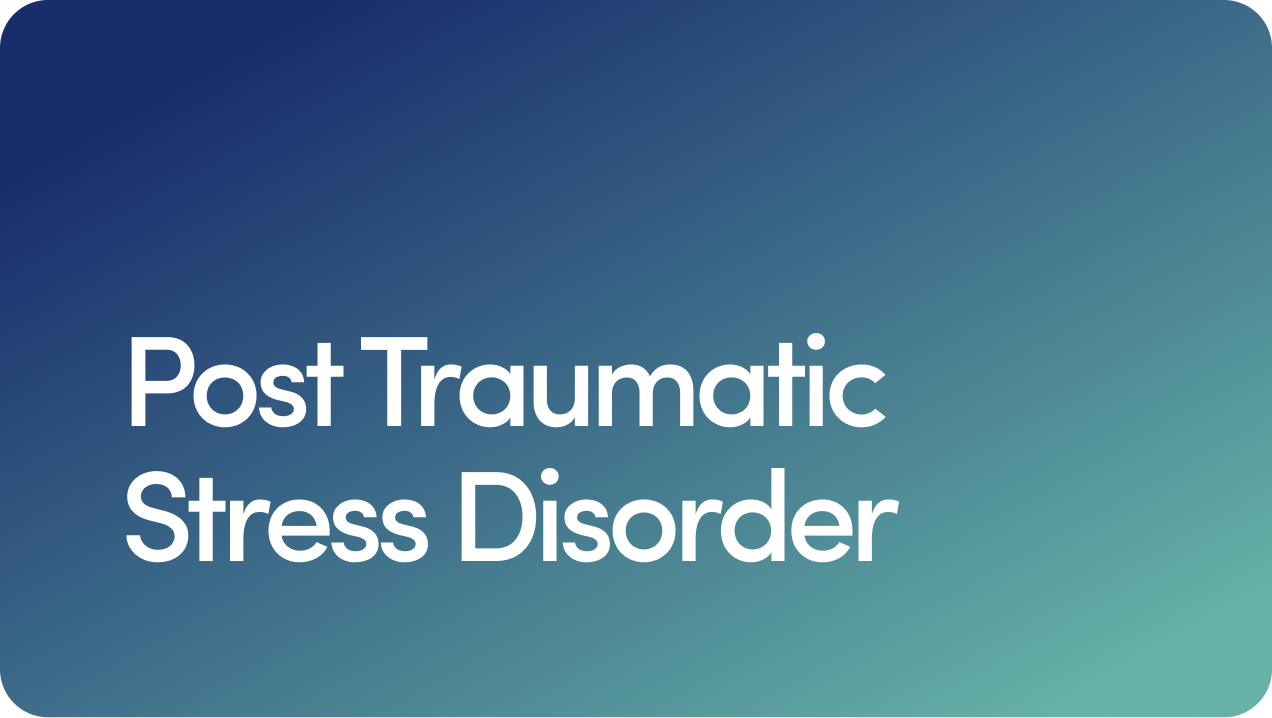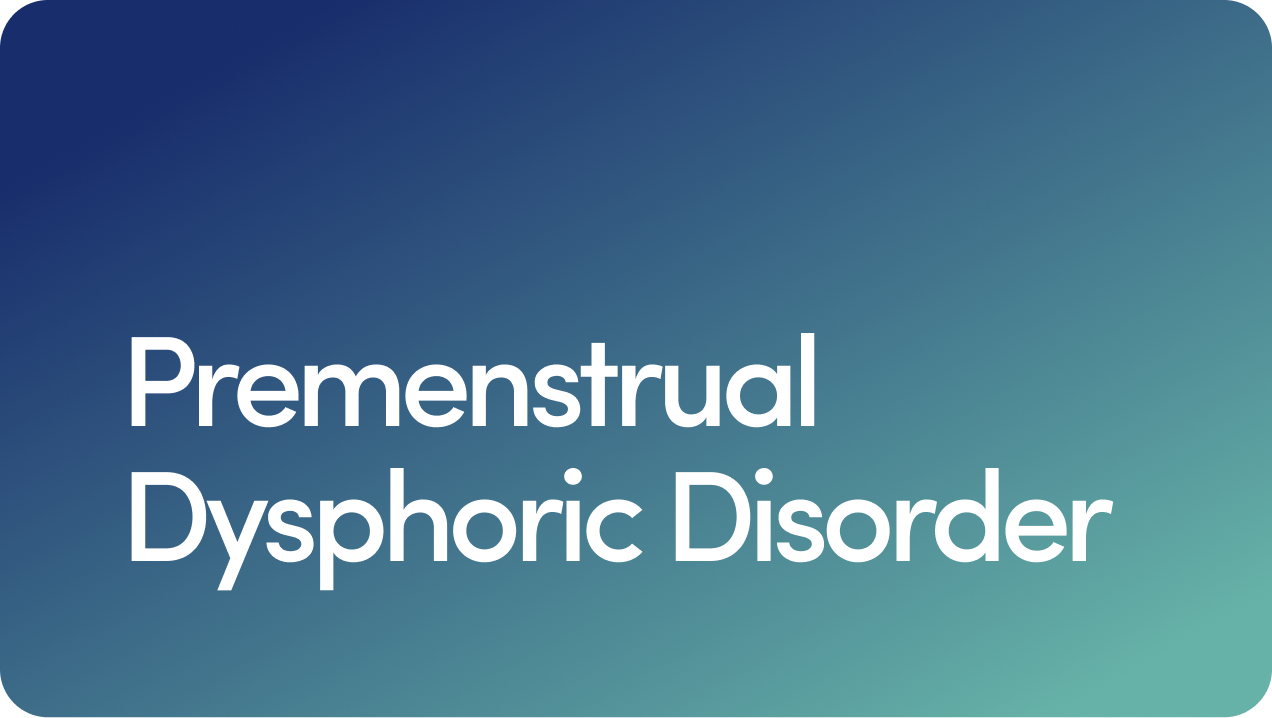Content
Free Mental Health Assessment
Why Do I Feel Like Everyone Hates Me?

Many of us have asked this question at some point: Why do I think everyone hates me? We may ask it when we’ve been ostracized by a group of friends, excluded by peers, or labeled as the family's black sheep.
These feelings of anxiety about being perceived badly, not fitting in, or not being accepted can commonly bubble up, especially when emotions are running high or group dynamics intensify. And these feelings can often cause people to doubt their self-worth.
When these feelings become pervasive — when they chronically recur, creating a pattern of self-doubt — they might indicate something deeper. In fact, they often signal issues like low self-esteem, excessive worry, imposter syndrome, people-pleasing, or something more serious.
If you feel like everyone hates you today or have felt this way in the past, you may wonder what causes it, what symptoms are related, and if there’s a way to rid yourself of this unpleasant feeling.
The bottom line is that you deserve to feel loved, included, and accepted. Ahead, we’ll break down some of the questions you may have about not feeling this way in greater detail and map out what could be driving your emotions.
Content
Some research suggests that people assume others like them less than they actually do. Specifically, a 2018 study examined the “liking gap,” which they described as the distance between how much you think someone liked you in a first interaction and how much they actually liked you.
The researchers found two things. First, most people underestimated how much they were liked by strangers after a first meeting. Second, after subsequent conversations, they continued to underestimate how much someone liked them.
So, in that respect, this “everyone hates me” mindset is somewhat common. However — and this is the important part — there’s a difference between being slightly off on your assessment and being fully convinced that everyone actively hates you. If the latter is happening, it likely indicates a deeper pattern or a link to a mental health condition.
It’s hard to determine the exact reason why you feel this way without context. Your reason for feeling like everyone hates you might be entirely different from someone else who assumes they’re hated. That said, there are some possible explanations, like:
Perceived mistakes
Negative self-talk and imposter syndrome
Certain mental health conditions
Let’s get into the details.
External Reasons and Perceived Mistakes
There are straightforward explanations to consider, like feeling guilty for a mistake you’ve made.
But hey… Mistakes happen. And just because you made one — we all make mistakes sometimes — doesn’t mean you deserve to be hated.
Taking accountability and learning from your mistakes can go a long way.
More often than not, your feelings of being hated by everyone aren’t because you actually made a mistake, but are instead being triggered by something else — possibly related to mental health or low self-esteem.
Imposter Syndrome and Negative Self-Talk
Though not a diagnosable mental illness on its own, imposter syndrome can feel really overwhelming.
It frequently involves feeling unworthy of being liked and accepted by your peers or being afraid that you don’t deserve your accomplishments and that everyone will “find out” you’re a fraud.
Though not always, imposter syndrome can be fueled by negative self-talk, a form of cognitive distortion. Negative thoughts about yourself and a general negative self-image constitute forms of self-talk.
Negative self-talk can feel like a megaphone for our fears and the things that make us self-conscious. We all see ourselves differently than others for various reasons, and negative self-talk can amplify that.
You may see yourself more negatively than others because you clearly remember your worst or most embarrassing moments. You might also have a less-than-accurate perception of your abilities in certain areas of life.
Mental Health Conditions
Some mental health disorders can induce a feeling that you’re disliked, disrespected, or that people are disappointed whenever you show up. Some of these mental health conditions and illnesses include:
Depression. There are a few different types of depression, and some can seriously mar self-confidence. Depression can bring up feelings of worthlessness and hopelessness, crushing self-esteem, and can even make you feel like nothing you do matters — like the universe is indifferent to you (or hates you). That’s the depression talking, and it’s treatable.
Bipolar disorder. Characterized by manic (up) and depressive (down) swings in mood, bipolar disorder can also make you think everyone feels negatively about you — including yourself.
Anxiety disorders. Anxiety disorders can also cause damage to your sense of self-worth and makes you feel destined to fail in the most spectacularly embarrassing ways.
When you have anxiety, your brain can get stuck in a looping montage of worst-case scenarios. You blew that deadline last week, so your boss must now hate you with every fiber of their being. The whole team must wish you would just quit — you just know it, without any real or solid evidence.
Social anxiety disorder, in particular, can fuel feelings of self-doubt. It’s marked by a fear of humiliation or rejection from a group. It stands apart from generalized anxiety disorder (GAD) because the central factor in your anxiety revolves around social interactions. It can rob you of relationships and friendships by making your fear of losing or ruining them too great. The result is self-isolating and feeling like you’re not welcome because your brain tells you that you should avoid social situations or any opportunity to embarrass yourself.
Borderline personality disorder (BPD). People who live with BPD often have an uncertain sense of self. Their feelings about people can fluctuate abruptly, which can lead to impulsive behavior, unstable relationships, and emotional pain. BPD is also marked by an intense fear of abandonment, which many cope with by avoiding close relationships. Like some of the aforementioned mental health conditions, BPD symptoms can be managed with the right treatment.
Paranoid schizophrenia. People with paranoid schizophrenia often experience delusions. In some people, these delusions can involve feeling like everyone hates them or is out to get them. It can sometimes impact their behavior.
While there’s no one quick-fix trick, there are ways to improve your inner monologue and self-esteem.
So, what do you do when you feel like everyone hates you? Whatever the cause, worrying that everyone hates you often involves cycles of overthinking and rumination.
And, by now, we've established that if you feel like everyone hates you, the odds point overwhelmingly to that not being the case. Instead, you're likely experiencing some sort of projection or cognitive distortion — and that's okay!
While there's no quick-fix trick to help you get rid of these types of thoughts, there are plenty of things you can do to help steer yourself away from them, including:
Identifying your recurring irrational thoughts and fears
Interrupting and rerouting negative self-talk
Seeking therapy
Considering medication
Now, take a deep breath, and let's learn more about each of these methods. Here’s what to do when you feel like everyone hates you.
1. Identify Irrational Thoughts and Fears
Low self-esteem, irrational fears, and some of the mental health conditions described above can all involve distorted thinking. Distorted thinking refers to patterns of thought that put disproportionately negative spins on lived experiences and observations.
Thinking that everyone hates you could be an example of distorted thinking. It can also be more subtle and manifest in certain humor styles.
Some examples of cognitive distortions include:
All-or-nothing thinking. This type of thinking involves binary categorization. Do you often think in absolutes or “black and white”? For example, if the words “never” or “always” come up a lot, you’re probably participating in all-or-nothing thinking. It can lead to jumping to conclusions and thinking more negatively about a situation than it warrants.
Catastrophizing. If you typically predict the worst-case scenario, then you might be catastrophizing. For example, if you forget to text back a friend for a few hours or have to reschedule something, and then you automatically assume that person will cut you off and hate you forever, you’re likely catastrophizing.
Personalization. It’s exactly what it sounds like: taking a moment or outcome that has nothing to do with you and assuming it’s all your fault. For example, if your coworker doesn’t come to the happy hour because they have to pick their child up from daycare, but you assume it’s because you used a period instead of an exclamation mark in your last email exchange, you’d be personalizing.
Mental filters. This is pretty much a fancy way of referring to a specific form of pessimism. Here’s an example: Let’s say you go to a party and enjoy catching up with some friends, and nothing super noteworthy happens. But then you forgot to shake one person’s hand, and now all you can focus on is that one perceived faux paus, and when you look back on the event, you see it as one big failure. If you only focus on one negative interaction and allow it to define a generally good experience, you may be using a mental filter.
If you catch yourself in these distorted thought patterns, remind yourself to focus on the facts instead of a more emotional interpretation. Journaling about it can help you distinguish between the two.
2. Reframe Negative Self-Talk
Once you’re aware of your negative thought patterns, it’s easier to identify irrational fears and harmful self-talk. If you catch yourself spiraling into all-or-nothing thinking, for example, practice interrupting yourself.
When you hear yourself participating in distorted thinking, take pause. Reevaluate the facts at hand and then talk back to those negative thoughts to reframe them.
If you’re unsure what to replace them with, think about what you’d say to a friend. Try saying that instead. Eventually, you might change those negative self-perceptions, and your self-talk will get kinder.
However, positive self-talk is just one element of the strategy for reducing these feelings. And when it comes to conditions like social anxiety, there are far more proven and effective solutions like psychotherapy and medication.
3. Seek Therapy
Therapy can be a great resource for learning how to use these tools more effectively. One commonly suggested form of therapy is cognitive behavioral therapy (CBT), which gives you the skills to reject those anxious, negative thought patterns and stop letting them run your life.
It works by helping you interrupt common cognitive distortions so you can reframe negative thought patterns and work towards rebuilding your well-being and self-worth.
With CBT, you might learn to push away the “everyone hates me” thoughts that keep you from saying yes to social plans and lead to feelings of dread every time you walk into work. It takes time and practice, but it’s one of the most effective and popular treatments for depression and anxiety today, and it’s something you can make a daily practice.
4. Consider Medication
Beyond talk therapy, a mental health professional might decide they think you’re a good candidate for medication that can address symptoms of mental health issues.
For example, some antidepressants are FDA-approved to treat a range of conditions that could be behind your negative feelings, including obsessive-compulsive disorder (OCD), post-traumatic stress disorder (PTSD), and GAD.
There are many types of antidepressants, but they typically target neurotransmitters in your brain — like serotonin — to improve your overall mood. Some antidepressants include:
Selective serotonin reuptake inhibitors (SSRIs)
Serotonin-norepinephrine reuptake inhibitors (SNRIs)
Atypical antidepressants (like bupropion)
Tricyclic antidepressants (TCAs)
Monoamine oxidase inhibitors (MAOIs)
Medications are often used in combination with other treatments like therapy, and it may take a few tries to find the best fit for you. If your negative thoughts are being caused by bipolar disorder, schizophrenia, or some other psychotic illness, then medication is pretty much a required element of your treatment plan.
Connect with one of our online psychiatry professionals to discuss medications that could help you.
In all of this discussion, we’ve only lightly touched on the possibility that everyone really does hate you for a reason. There’s a simple explanation for why, and it bears repeating: You don’t deserve to be hated, and it may be time to talk to a professional about those feelings of regret or remorse.
Plus, chances are that not everyone hates you. Here’s what to remember next time you find yourself asking, why does everybody hate me?:
Some research suggests that the average person usually assumes they’re less well-liked than they really are. It’s a common feeling, and you are far from alone.
If your feelings of being unliked are severe and frequent enough, they could point to some underlying mental health conditions. Things like depression, anxiety disorders, and personality disorders can all involve self-doubt and negative self-talk.
Whether due to a mental health condition or general low self-esteem, distorted thinking patterns are often what’s fueling the question, “Does everyone hate me?” Examples of distorted thinking include catastrophizing and mental filters.
Whatever the cause, there are ways to manage your feelings of social rejection. The road to self-care can include re-routing negative self-talk, seeking CBT therapy, or reaching out for psychiatric help.
It’s tough to feel like no one, including yourself, loves you. Even if it only happens on occasion.
A mental health professional can help guide you through those feelings, reassure you that you’re not a bad person, and, most importantly, help you to grow and manage your emotions.
Our psychiatric services can help you get started on the journey to rebuilding your self-esteem and managing your feelings of self-doubt. We offer access to medication for those who need it, and we promise that the mental health professionals you match with won’t have an ounce of hate for you.
Our mental health resources are also a great place to answer additional questions you might have.
13 Sources
- American Psychological Association Dictionary of Psychology. (2023). Self-talk. Retrieved from https://dictionary.apa.org/self-talk
- Boothby ER, et al. (2018). The Liking Gap in Conversations: Do People Like Us More Than We Think? Retrieved from https://journals.sagepub.com/doi/abs/10.1177/0956797618783714
- Choi YO, et al. (2019). The relationship between levels of self-esteem and the development of depression in young adults with mild depressive symptoms. Retrieved from https://www.ncbi.nlm.nih.gov/pmc/articles/PMC6824750/
- Huecker MA, et al. (2023). Imposter Phenomenon. Retrieved from https://www.ncbi.nlm.nih.gov/books/NBK585058/
- National Institute of Mental Health. (2024). Anxiety Disorders. Retrieved from https://www.nimh.nih.gov/health/topics/anxiety-disorders
- National Institute of Mental Health. (2024). Bipolar Disorder. Retrieved from https://www.nimh.nih.gov/health/topics/bipolar-disorder
- National Institute of Mental Health. (2022). Borderline Personality Disorder. Retrieved from https://www.nimh.nih.gov/health/publications/borderline-personality-disorder
- National Institute of Mental Health. (2023). Mental Health Medications. Retrieved from https://www.nimh.nih.gov/health/topics/mental-health-medications#part_149861
- National Institute of Mental Health. (2022). Social Anxiety Disorder: More Than Just Shyness. Retrieved from https://www.nimh.nih.gov/health/publications/social-anxiety-disorder-more-than-just-shyness
- National Health Services. (2023). Symptoms - Schizophrenia. Retrieved from https://www.nhs.uk/mental-health/conditions/schizophrenia/symptoms/
- Otte CH. (2011). Cognitive behavioral therapy in anxiety disorders: current state of the evidence. Retrieved from https://www.ncbi.nlm.nih.gov/pmc/articles/PMC3263389/
- Rnic KA, et al. (2016). Cognitive Distortions, Humor Styles, and Depression. Retrieved from https://www.ncbi.nlm.nih.gov/pmc/articles/PMC4991044/
- Sheffler ZA, et al. (2023). Antidepressants. Retrieved from https://www.ncbi.nlm.nih.gov/books/NBK538182/
Editorial Standards
Hims & Hers has strict sourcing guidelines to ensure our content is accurate and current. We rely on peer-reviewed studies, academic research institutions, and medical associations. We strive to use primary sources and refrain from using tertiary references. See a mistake? Let us know at [email protected]!
This article is for informational purposes only and does not constitute medical advice. The information contained herein is not a substitute for and should never be relied upon for professional medical advice. Always talk to your doctor about the risks and benefits of any treatment. Learn more about our editorial standards here.
Daniel Z. Lieberman, MD
Education
Doctor of Medicine - New York University Grossman School of Medicine, 1992
Bachelor of Arts - St. John’s College, 1985
Training
Internship & Residency - New York University Grossman School of Medicine, 1996
Medical Licenses
District of Columbia, 1996
Maryland, 2022
Virginia, 2022
Board Certifications
American Board of Psychiatry and Neurology, Psychiatry, 1997
American Board of Psychiatry and Neurology, Addiction Psychiatry, 1998
Other Certificates & Certifications
Stanford Online, AI in Healthcare Specialization Certificate, 2025
Stanford Online, Machine Learning Specialization Certificate, 2024
Affiliations & Memberships
Specialties & Areas of Focus
Mental Health
Years of Experience
33
Previous Work Experience
Professor and Vice Chair - Department of Psychiatry and Behavioral Sciences, George Washington University, 1996–2022
Publications & Research
Title: A neurotransmitter approach to the trolley problem
Published in: OBM Neurobiology
Date: 2019
URL: https://www.lidsen.com/journals/neurobiology/neurobiology-03-02-030
Title: An automated internet application to help patients with bipolar disorder track social rhythm stabilization
Published in: Psychiatric Services
Date: 2011
URL: https://psychiatryonline.org/doi/10.1176/ps.62.11.pss6211_1267
Title: Enhancing adherence to mood charting with an online version of the NIMH Life Chart
Published in: Annals of General Psychiatry
Date: 2010
URL: https://annals-general-psychiatry.biomedcentral.com/articles/10.1186/1744-859X-9-S1-S11
Title: The role of gender in single versus married patients with bipolar disorder
Published in: Comprehensive Psychiatry
Date: 2010
URL: https://www.sciencedirect.com/science/article/abs/pii/S0010440X0900128X
Title: Evaluation of the stability and validity of participant samples recruited over the Internet
Published in: CyberPsychology and Behavior
Date: 2008
Title: Pathways to change: The effect of a Web application on treatment interest
Published in: The American Journal on Addictions
Date: 2008
URL: https://onlinelibrary.wiley.com/doi/10.1080/10550490802138525
Media Mentions & Features
Washington Post, Why do passengers freak out on airplanes? Science might have the answer.
Associated Press, MillerCoors Tapping Into Millenials
The Washington Post, Holiday drinking can be hard on your health, but you can take precautions
Le Figaro (France), Daniel Z. Lieberman: «La dopamine nous pousse à acheter en nous promettant le bonheur» (Daniel Z. Lieberman: “Dopamine drives us to buy by promising us happiness”)
Men’s Health (Spain), Cómo la dopamina influye en nuestro cerebro y determina nuestra vida (How dopamine influences our brain and determines our lives).
CNBC, The psychological reason it’s so hard to work today after the riot — and how to cope
Business Insider, The reason why we self-sabotage is because our brains are wired to resist the things we want most in life
U.S. News & World Report, How Your Secrets Can Damage and Maybe Even Kill You
Why I Practice Medicine
I practice medicine because I believe that mental health is the foundation of a meaningful life. When people suffer psychologically, it touches every part of their existence—from relationships to work to the simple ability to feel joy. Because it can be so difficult for people who are suffering to find good mental health care, my mission has been to expand access through technology, so that no one is left behind.
Hobbies & Interests
I like to write in my spare time. I’ve written two nonfiction titles, Spellbound: Modern Science, Ancient Magic, and the Hidden Potential of the Unconscious Mind and the international bestseller, The Molecule of More: How a Single Chemical in Your Brain Drives Love, Sex, and Creativity--and Will Determine the Fate of the Human Race
Professional Website or Profile
danielzlieberman.com
Related Articles
Related Conditions
 Anxiety
Anxiety
 Depression
Depression
 OCD
OCD
 PTSD
PTSD
 Bipolar Disorder
Bipolar Disorder
 Premenstrual Dysphoric Disorder
Premenstrual Dysphoric Disorder